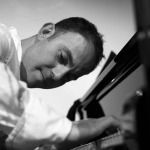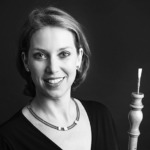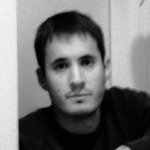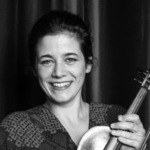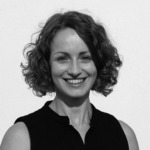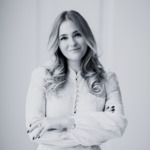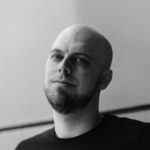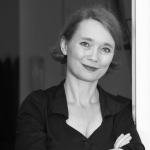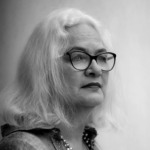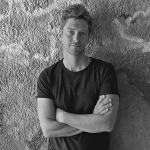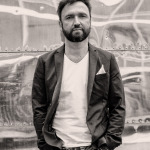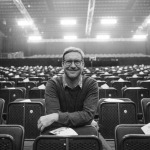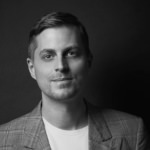Workshop-Leiter*innen
-
![]()
Karen Asatrian
PLAY! - Your easy way to Jazz and Improvisation
VIENNA / KlagenfurtPLAY! - Your easy way to Jazz and Improvisation
VIENNA / Klagenfurt
Over the past 20 years, the Armenian pianist and keyboarder Karen Asatrian has played a major role in shaping the diversity of Austria’s musical landscape with projects (such as Armenian Spirit) that span genres and cultures. He teaches at the Gustav Mahler Private University for Music in Klagenfurt and at the mdw’s Department of Popular Music in Vienna.
-
![©Amarilio Ramalho ©Amarilio Ramalho]()
Elisabeth Baumer
Baroque oboe
VIENNABaroque oboe
VIENNA
Elisabeth Baumer was born in Klagenfurt. Together with Paolo Grazzi and Marie Wolf, she studied historical oboe in Verona and Vienna and recorder with Rahel Stoellger. All diplomas with distinction.
Since 2004 she is a solo oboist of the Accademia Bizantina (Ottavio Dantone). Intensive collaboration with Barokkanerne Oslo, Barucco (Heinz Ferlesch), Concerto Stella Matutina, Concentus Musicus (Nikolaus Harnoncourt/Stefan Gottfried), Les Arts Florissants (William Christie), Les Musiciens du Louvre (Marc Minkowski), L’Orfeo Baroque Orchestra and Wind Ensemble (Michi Gaigg/Carin van Heerden) and others.
She has had concert appearances throughout Europe, China, Japan, South Africa, South America and the USA.
Numerous CD recordings had been published, including with Nikolaus Harnoncourt and Claudio Abbado.
She ist the artistic director of the Austrian-Italian ensemble Affinità and the concert series “ AFFINITÀ IM ACHTEN ‘ in Vienna-Josefstadt, which was expanded in 2020 to include a platform for the promotion of young musicians (’Bühne frei für junge Alte Musik”, in cooperation with the mdw and the MUK).
Elisabeth Baumer is particularly interested in Austrian baroque music of the early 18th century and sources on baroque ornamentation practice.
-
![]()
Ivar Roban Križić
Thinking Through Art: An Introduction to Artistic Research
ZagrebThinking Through Art: An Introduction to Artistic Research
Zagreb
Ivar Roban Križić (*1990, Zagreb, Croatia) is a musician/researcher/composer/curator/educator who studied double bass at the jazz department in Graz and completed a doctorate in artistic research at the mdw – University of Music and Performing Arts Vienna with a focus on the epistemology of free improvisation. His artistic practice includes a variety of international projects spanning contemporary jazz, experimental music and free improvisation. His research deals with musical cognition, AI and technical and technological extensions of the double bass.
Apart from his artistic endeavors, Ivar is also engaged in curatorial and pedagogical pursuits. His festival “Perspectives on Improvisation” wishes to to promote a transdisciplinary discourse on improvisation, allowing the artists to both perform as well as reflect on their work. Ivar has also led workshops and given lectures on free improvisation and artistic research at universities and festivals in Vienna, Graz, Linz, and Oslo, as well as presented papers at various symposia around Europe. -
![]()
Johanna Kugler
Inspiration Folk music
VIENNAInspiration Folk music
VIENNA
Johanna Kugler, born in Vienna in 1988, is a violinist and singer with a busy concert schedule in Europe and beyond, as well as working in music education. She specialises in researching and performing traditional music styles, and her engagements take her to popular concert and festival stages, as well as to countless weddings and other dance events as a dance floor musician. Music education in refugee centres, schools and as part of workshops and courses in Austria and abroad, teaching traditional Alpine and European music styles at the mdw – University of Music and Performing Arts Vienna since 2017.
-
![©Atelier Roeger ©Atelier Roeger]()
Veronika Jana Lubert
PERFORMANCE PSYCHOLOGY
VIENNAPERFORMANCE PSYCHOLOGY
VIENNA
Veronika Jana Lubert is Professor of Musicians’ Health at the Lucerne University of Applied Sciences and Arts – Music. Her psychological expertise also takes her to renowned international orchestras, summer academies, and institutions such as the Royal College of Music in Stockholm and the Royal Northern College of Music.
Drawing on her extensive background in research and teaching within social and sport psychology, her focus lies in applying mental strategies from sports to the performing arts. She supports musicians in finding their personal balance between peak performance and well-being. As a freelance violinist, she also performs with professional ensembles, combining her psychological and musical experience. -
![]()
Camille Moore
Personal Brand Mastery in the Age of AI
TORONTOPersonal Brand Mastery in the Age of AI
TORONTO
Camille Moore is a globally recognized branding strategist with deep expertise in helping musicians and creatives carve out their distinctive place in the market. With a following of over 150,000 across social platforms and a proven track record of driving transformative results, she brings a forward-thinking approach to building personal brands that integrate authenticity and digital savvy. Camille’s methods blend timeless marketing principles with cutting-edge AI applications, providing composers and musicians with the guidance they need to maximize their visibility and impact—without compromising artistic integrity.
-
![©Victoria Nazarova ©Victoria Nazarova]()
Philipp Nykrin
All Those Noises – Electronic keyboard instruments
VIENNAAll Those Noises – Electronic keyboard instruments
VIENNA
Born in Salzburg in 1984, Philipp Nykrin studied jazz piano at the Anton Bruckner Private University with Martin Stepanik and Christoph Cech as well as jazz violin with Andreas Schreiber. He has worked as a producer, composer, and both leader and co-leader on his own projects (Philipp Nykrin Trio, Namby Pamby Boy, Common Sense) and as part of his longstanding collaboration with the rapper Nina FIVA Sonnenberg.
As a sideman on piano, synthesizers, and other keyboard instruments, he has played with artists and ensembles from various genres: Conchita Wurst, Christian Muthspiel and Orjazztra Vienna, Karl Ritter’s KOMBOjaner, Gina Schwarz’s Pannonica, Lorenz Raab, Herbert Pirker, Julian Le Play, SK Invitational, Yasmo, Lylit, Thomas Gansch, Viola Falb, Beate Wiesinger’s e c h o boomer, the Tobias Hoffmann Nonet / Jazz Orchestra, and Theater Ecce Salzburg.
Nykrin has concertized in over 20 countries and performed at renowned locations and festivals of the jazz and alternative worlds as well as at the German-speaking region’s major pop venues and festivals. He was awarded a composing commission by the Saalfelden Jazz Festival in 2014, and 2017 witnessed the release of his album Songbook with solo pieces and duets. Songbook joins the releases of the trio Namby Pamby Boy as well as the album wire resistance as a further building block in Philipp Nykrin’s close musical collaboration with the musician Fabian Rucker.
-
![]()
Sueye Park
Violin
BerlinViolin
Berlin
Sueye Park was born in South Korea in 2000 and began studying the violin at the age of four. Her musical gifts were recognized early on, and at the age of just nine she began her studies with Ulf Wallin at the Hochschule für Musik “Hanns Eisler” in Berlin.
She’s been continuing her Artist Diploma by Vadim Gluzman at Peabody Institute of Johns HopkinsUniversity since January 2025.Sueye has performed with orchestras including the Orchestra of the Komische Oper Berlin, the Staatskapelle Weimar, the Korean Symphony Orchestra and the Seoul Philharmonic Orchestra. She has also played at various festivals and concert halls in Europa, Israel, Tunisia, Indonesia and South Korea. Performances with Adrian Brendel, Ralf Gothoni, Gary Hoffman, Tatjana Masurenko, Roland Pöntinen und Nicolas Stavy etc.
Sueye has participated in numerous radio and TV broadcasts in Germany, Israel, South Korea, Spain and Sweden. In 2017 her début disc was released, a critically acclaimed recording of the 24 Paganini Caprices, followed by a recital disc, ‘Salut d’amour’. Her album ‘Journey Through a Century’ was selected as Editor’s Choice as the “Recordings of the Year” by Gramophone in 2021. The 3. Violin Concerto of Isang Yun with the Seoul Philharmonic Orchestra conducted by
Osmo Vänskä and the complete works for violin & piano of Karol Szymanowski with the pianist Roland Pöntinen were released in 2022/23.She received valuable artistic impulses from Vadim Gluzman, Saschko Gawriloff, Ivry Gitlis, Ida Haendel, Nobuko Imai, Donald Weilerstein, Gerhard Schulz. She has taken part in numerous masterclasses, for example at the Keshet Eilon International String Mastercourse in Israel, the Seiji Ozawa Academy in the Switzerland and the Kronberg Academy. Sueye plays a G. B. Gudagnini (Milan 1753, “ex Hamma”), generously on loan from the Samsung
Foundation of Culture.Sueye Park has just been announced as the winner of this years Jean Sibelius Violin Competition, held in Helsinki.
-
![©Mehmet Emir ©Mehmet Emir]()
Ulla Pilz
Talking to an Audience
GRAZTalking to an Audience
GRAZ
Ulla Pilz studied voice and composing at the MUK ‒ Music and Arts University of the City of Vienna.
Pilz works as a freelance presenter, singer, actress, author, director, music mediator, and host of music programs for the Austrian radio station Ö1. She has played roles at the Theater an der Wien and the Burgtheater as well as in productions of the Wiener Festwochen and in many other contexts. As a music mediator and presenter, she has collaborated with the Vienna Musikverein and the Wiener Konzerthaus, Jeunesse, the Brucknerhaus and the Bruckner Orchestra Linz, the festival Styriarte, the Vienna Philharmonic and Wiener Symphoniker, the ORF Vienna Radio Symphony Orchestra, the Tonkünstler Orchestra of Lower Austria, Ensemble Kontrapunkte, and others.
Ulla Pilz holds a “senior artist” position at the University of Music and Performing Arts Graz. -
![©Bartek BARCZYK ©Bartek BARCZYK]()
Ewa Poblocka
AROUND CHOPIN
PolandAROUND CHOPIN
Poland
Ewa Pobłocka is an acclaimed Polish pianist, a prize-winner of the 10th International Fryderyk Chopin Piano Competition (1980). She has performed worldwide in renowned venues, collaborating with leading orchestras such as the London Symphony Orchestra and Sinfonia Varsovia. Known for her interpretations of Chopin and Bach, she was the first Polish pianist to record Das Wohltemperierte Klavier in its entirety. Pobłocka is also a champion of Polish contemporary music, premiering and recording numerous works. A dedicated pedagogue, she teaches at the Academy of Music in Bydgoszcz and frequently serves as a juror in international piano competitions.
-
![©Kaveri Sageder ©Kaveri Sageder]()
Philipp Sageder
PLAY! - Your easy way to Jazz and Improvisation
ViennaPLAY! - Your easy way to Jazz and Improvisation
Vienna
Philipp Sageder – singer, vocal percussionist, and self-styled “sound scientist” – has mounted world tours with his “vocal groove project” Bauchklang and works internationally as a live and studio musician, as an arranger, and as a composer in a wide range of pop, jazz, and art projects (such as Klangwolke 2008).
He teaches voice in Vienna at the Department of Popular Music of the mdw – University of Music and Performing Arts Vienna. -
![©Thomas Radlwimmer ©Thomas Radlwimmer]()
Horst-Michael Schaffer
PLAY! - Your easy way to Jazz and Improvisation
Vienna / GrazPLAY! - Your easy way to Jazz and Improvisation
Vienna / Graz
Alongside his teaching activities at the Department of Popular Music of the mdw – University of Music and Performing Arts Vienna and at the University of Music and Performing Arts Graz (KUG), as part of which he covers areas from instrumental instruction to band coaching and from arranging to improvisation and solo playing in a number of styles, Horst-Michael Schaffer has also spent many years leading the renowned JBBG – Jazz Bigband Graz. In his artistic projects, he works together with a wide range of well-known artists from the pop, jazz, and classical music worlds.
-
Else Schmidt
United in the Rhythm of Waltz
VIENNAUnited in the Rhythm of Waltz
VIENNA
Born in Vienna in 1964, she has been teaching music and mathematics at the Realgymnasium Wien V/Haydn-Real-Gymnasium since 1990. Active in teaching (folk) music in youth and adult education in Austria and abroad in connection with her chairmanship of the “Arbeitsgemeinschaft Volkstanz Wien” (since 1988) and the “Bundesarbeitsgemeinschaft Österreichischer Volkstanz” (since 2014).
In 2003, she was assigned the teaching position for the movement and dance practical course at the Institute for Folk Music Research and Ethnomusicology. Her research focuses on the manifestations of 19th century couple dances today, especially in the Salzkammergut.
Member of the Study Group on Ethnochoreology of the ICTMD.
-
![©Theresa Pewal ©Theresa Pewal]()
Thomas Toppler
Let’s Play - Interdisciplinary Performance Lab
VIENNALet’s Play - Interdisciplinary Performance Lab
VIENNA
As a musician, Thomas Toppler has worked with renowned orchestras, including the Vienna Symphony Orchestra (Wiener Symphoniker), Concentus Musicus Wien, Volksoper Wien, and is a founding member of The Erlkings. The ensemble surprises with their charming, radical and respectful arrangements and English adaptations of German art songs such as Franz Schubert, Robert Schumann, Hugo Wolf and Ludwig von Beethoven and could convince audiences and critics on many famous stages such as Wigmore Hall London, Konzerthaus Berlin, Wiener Konzerthaus, Allegro Vivo, Ludwigsburger Schlossfestspiele, Schleswig Holstein Musik Festival. His London-based theater company Ship of Fools, in which he serves as director, has successfully toured its productions throughout the UK since 2014. As a director, he has overseen programs by musical groups such as Da Blechhaufn, Louie’s Cage Percussion, The Hankebrothers, Mozartwochen 2019 and directs commercials for the likes of Die Gruft and Das Neunerhaus.
Thomas also teaches acting at the Schule des Theaters in Vienna, the workshop Let’s Play at the isa – International Summer Academy of the mdw in Reichenau/Rax, the ECMA – European Chamber Music Academy in Grafenegg, the Young Masters Program of the mdw – University of Music and performing Arts Vienna, the EEEmerging – Emerging European Ensembles, as well as at the Leonard Bernstein Institute of the mdw. Further teaching activities at the Gründerzentrum of the Vienna University of Economics and Business Administration and mdw in the field of pitching.
-
![]()
Andreas Vierziger
Career Strategy Consulting for Instrumentalists and Ensembles
VIENNACareer Strategy Consulting for Instrumentalists and Ensembles
VIENNA
Andreas Vierziger works as an independent strategist, innovation consultant and curator for various international music institutions and projects within the classical music industry. Previously, he was artist manager for a number of well-known artists, including GRAMMY award winners.
Among his project partners and clients are and were for example David Lynch’s Silencio Club in Paris (regular guest curator), the video streaming platform for classical music takt1 (Head of Artistic Cooperations), Camerata Salzburg (Board of Directors), Thomastik-Infeld, Welsh National Opera, Vivienne Westwood, Budapest Spring, Grafenegg Festival and many more.
He has been a juror at more than 25 international music competitions and is regularly invited to lecture at universities including mdw – University of Music and Performing Arts Vienna, Tokyo University of the Arts, Zurich University of the Arts, Liszt Academy Budapest, Royal Danish Academy of Music, Bilkent University Ankara, Sibelius Academy Helsinki and the Paris-Sorbonne.

